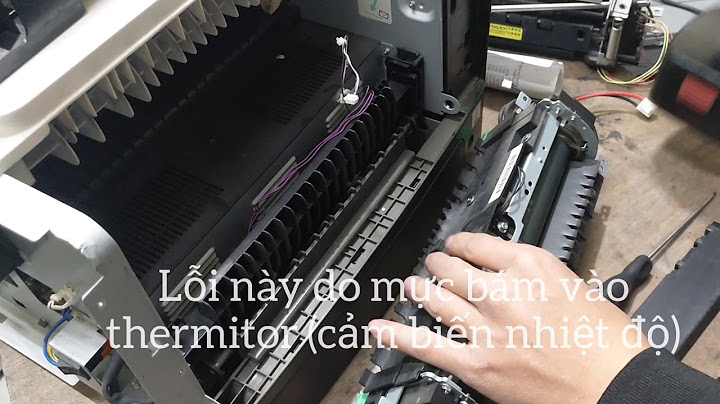1. Which of the following activities do you think teenagers should or shouldn’t do to live green? Put a tick in the appropriate column.Activities Show
Should Shouldn’t 1. Leaving your appliances on when not in use (Bật các thiết bị khi không sử dụng.) ✓ 2. Recycling your used items (Tái chế đồ vật đã qua sử dụng) ✓ 3. Using plastic bags when shopping (Sử dụng túi nhựa khi đi mua sắm.) ✓ 4. Buying organic food (Mua thức ăn hữu cơ) ✓ 5. Dropping litter in the street (vứt rác trên đường phố) ✓ 6. Planting trees (Trồng cây) ✓ 2. The table below presents the reasons why teenagers should or shouldn’t do the activities in 1. Work in pairs and match them with the activities.Reasons Activities
(Việc này khiến cho đường phố bẩn và ô nhiễm) Activity 5
(Việc này làm lãng phí điện và gây ra các trường hợp nguy hiểm) Activity 1
(Phải mất nhiều năm để vật liệu phân huỷ) Activity 3
(Việc này làm giảm bớt việc sử dụng hoá chất độc hại trong thức ăn) Activity 4
(Việc này giúp bảo vệ tài nguyên thiên nhiên) Activity 2
(Chúng cung cấp bóng mát và không khí trong lành) Activity 6 3. Work in groups. Discuss and present your ideas about what you should or shouldn’t do to live green.Gợi ý câu trả lời: There are a lot of things that we should or shouldn’t do to live green. Firstly, we should turn off household appliances when they are not in use so that we can save energy and reduce our carbon footprint. Secondly, we shouldn’t use plastic bags when we go shopping because it takes many years for them to break down into small pieces, which is very harmful to the environment. Instead, we can bring reusable bags. In addition, it is better for us to buy organic products. This helps to reduce the use of harmful chemicals in food. (Dịch: Có rất nhiều việc mà chúng ta nên hoặc không nên làm để sống xanh. Thứ nhất, chúng ta nên tắt các thiết bị trong nhà khi không sử dụng để có thể tiết kiệm năng lượng và giảm lượng khí CO2 thải ra. Thứ hai, chúng ta không nên sử dụng túi nhựa khi đi mua mua sắm bởi vì phải mất nhiều năm thì chúng mới bị phân huỷ, điều này gây hại cho môi trường. Thay vào đó, chúng ta có thể mang theo túi tái sử dụng. Ngoài ra, tốt hơn chúng ta nên mua sản phẩm hữu cơ. Điều này giúp giảm việc sử dụng hoá chất độc hại trong thức ăn.) Xem thêm: Soạn tiếng Anh lớp 10 Unit 2 Listening. Tổng kếtTrên đây là toàn bộ đáp án và giải thích chi tiết . Thông qua bài viết trên, Anh ngữ ZIM hy vọng rằng học sinh sẽ tự tin học tập tốt với môn Tiếng Anh 10 Global Success. Ngoài ra, Anh ngữ ZIM hiện đang tổ chức các khóa học IELTS với lộ trình cá nhân hoá được thiết kế phù hợp với nhu cầu, trình độ và tiết kiệm tới 80% thời gian tự học giúp học viên nâng cao trình độ tiếng Anh và đạt kết quả tốt trong kỳ thi IELTS. Học sinh được hỗ trợ giải đáp thắc mắc, chữa bài tập trên diễn đàn bởi các Giảng viên chuyên môn đang giảng dạy tại ZIM. Chúng ta sử dụng câu bị động khi người hay chủ thể thực hiện hành động không quan trọng hoặc không được biết đến hoặc chúng ta không muốn nói đến người thực hiện hành động là ai. Chúng ta chỉ tập trung vào chính hành động mà thôi. Bài tập tiếng Anh lớp 10 Unit 2 Humans and the environment là tài liệu vô cùng hữu ích, giúp học sinh lớp 10 củng cố bài tập sau các bài học trên lớp sách Global Success 10. Bài tập Unit 2 lớp 10 Global success giúp học sinh mở rộng vốn từ vựng, cải thiện ngữ pháp và rèn kỹ năng ngôn ngữ. Qua đó giúp học sinh sử dụng tiếng Anh một cách tự tin kỹ năng đọc hiểu, nghe hiểu, viết và nói. Bài tập bổ trợ tiếng Anh 10 Unit 2 không chỉ giúp học sinh tiếp cận với nhiều mẫu câu, ngữ cảnh và văn bản mới mà còn giúp cải thiện khả năng sáng tạo, logic, và sự tự tin trong việc sử dụng tiếng Anh. Lưu ý: Bài tập Unit 2 lớp 10 Global success gồm có 2 file bài tập khác nhau. Bộ 1 có đáp án chi tiết còn bộ 2 hiện chưa có đáp án chúng tôi sẽ cập nhật trong thời gian sớm nhất. Bài tập Unit 2 lớp 10 Global success - Bộ 1
1. I completely forgot about this report. Give me a minute, I………..do it now.
2. Tonight, I……stay home. I’ve borrowed some books.
3. I feel tired. I…………sick
4. If any problems arise, feel free to ask me. I….help you
5. Where are you going?
6. That’s the phone./ I….answer it
7. Look at those black clouds. It….now
8. Tea or coffee?
9. Thanks so much for your offer. But I am OK. Nhi………help me
10. The weather forecast girl says it…….rain tomorrow
II. Rewrite the sentence into passive voice. 1. We pointed a new marketing manager. 2. People spend a lot of money on advertising everyday . 3. She showed her ticket to the airline agent. 4. He hides the broken cup in the drawer. 5. People speak English all over the world. 6. Thomas Edison invented the phonograph in 1877. 7. Children don’t clean their bedrooms every day. 8. Mary eats a loaf of bread every morning. III. There is a mistake in each sentence. Find and correct it. 1. A new school is going to be build in the neighbourhood next year. 2. This kind of bird is only founded in remote places in Scotland. 3. The wildlife park is visit each day by hundreds of people. 4. People should avoid using products which make from plastic. 5. Students are instruct on how to recycle the used items in their homes. 6. Look at those black clouds. It will rain. 7. A: Why are you wearing your best suit ? B: I will have an interview this afternoon. 8. Animals should not be use for the benefits of human beings. Đáp án bài tập tiếng Anh lớp 10 unit 1
1 - a; 2 - a; 3 - a; 4 - a; 5 - a; 6 - a; 7 - b; 8 - b; 9 - b; 10 - a; II.Rewrite the sentence into passive voice. 1 - A new marketing manager was pointed. 2 - A lot of money is spent on advertising everyday . 3 - Her ticket was showed to the airline agent. 4 - The broken cup is hidden in the drawer. 5 - English is spoken all over the world. 6 - The phonograph was invented by Thomas Edison in 1877. 7 - Children’s bedrooms aren’t cleaned every day. 8 - A loaf of bread is eaten by Mary every morning. III.There is a mistake in each sentence. Find and correct it. 1 - build sửa thành built 2 - founded sửa thành found 3 - visit sửa thành visited 4 - make sửa thành are made 5 - instruct sửa thành instructed 6 - will sửa thành is going to 7 - will sửa thành am going to 8 - use sửa thành used Bài tập Unit 2 lớp 10 Global success - Bộ 2Ngữ pháp tiếng Anh 10 Unit 2
1. The future simple with “will” * Cấu trúc (Form) Affirmative (Khẳng định) Negative (Phủ định) Interrogative (Nghi vấn) S + will + V (bare-inf) + (O) S + will + not + V (bare-inf) + (O) Will + S + V (bare-inf) + (O)? The shop will open in June. (will = ‘ll) The shop won’t open in June. (won’t = will not) Will the shop open in June? Note: Trong những ngữ cảnh trang trọng thì ta có thể dùng shall thay cho will khi đi với chủ ngữ I và We E.g: Shall/ Will I see you before 10 o’clock? * Cách dùng (Use) - Diễn tả dự đoán không có căn cứ (predictions) E.g: I think it will rain tomorrow. (Tôi nghĩ ngày mai trời sẽ mưa.) - Diễn tả quyết định nhất thời tại thời điểm nói (decisions made at the moment of speaking) E.g: I will drink coffee, please. (Tôi sẽ uống cà phê.) - Diễn tả lời yêu cẩu, đề nghị (requests and offers) E.g: Will you help me carry this suitcase, please? (Bạn làm ơn giúp tôi mang cái va li này nhé?) a request E.g: Shall I make you a cup of tea? (Tôi pha cho bạn tách trà nhé?) an offer - Diễn tả lời hứa (promises) E.g: I promise I will arrive on time. (Tôi hứa sẽ đến đúng giờ.) - Diễn tả lời từ chối với won’t (refusals) E.g: No, I won’t eat this kind of food. (Không, tôi sẽ không ăn món ăn này.) - Diễn tả sự việc thực tế sẽ xảy ra ở tương lai (future facts) E.g: The shop will open tomorrow. (Cửa hàng sẽ mở cửa vào ngày mai.) * Time phrases (Các cụm từ thời gian) Chúng ta thường sử dụng thì này với các cụm từ thời gian như tomorrow, next week/ month/ etc., in the future, when I’m older, later, soon, etc. Note: Chúng ta cũng thường sử dụng thì tương lai đơn với các cụm từ như I hope/ think/ expect/ etc hoặc các từ như probably/ perhaps E.g: Perhaps it will rain tomorrow. 2. The future simple with “be going to” * Cấu trúc (Form) Affirmative (Khẳng định) Negative (Phủ định) Interrogative (Nghi vấn) S + is/ am/ are + going to + V(bare-inf) + (O) S + is/ am/ are + not + going to + V(bare-inf) + (O) Is/ Am/ Are + S + going to + V(bare-inf) + (O)? They are going to visit their parents. They aren’t going to visit their parents. Are they going to visit their parents? II. THE PASSIVE VOICE (THỂ BỊ ĐỘNG) 1. Cấu trúc (Form) Chủ động: S + V + O Bị động: S + be + PP (+ by + O) * Note: - TÂN NGỮ (O) trong câu chủ động làm CHỦ NGỮ trong câu bị động. - ĐỘNG TỪ (V) trong câu chủ động sẽ chuyển thành “be + PP”. Trong đó “be” chia theo thì và chia theo chủ ngữ. - CHỦ NGỮ (S) trong câu chủ động sẽ biến đổi thành tân ngữ và có giới từ “bỵ” phía trước (by + O). E.g: Chủ động: My parents (S) will build (V) a house (O) next year. Bị động: A house (S) will be built (be PP) by my parents (by O) next year. Các bước để chuyển từ câu chủ động sang câu bị động Xác định S, V, O và thời của V trong câu chủ động. Lấy O trong câu chủ động làm S của câu bị động. Lấy S trong câu chủ động làm O và đặt sau by trong câu bị động. Biến đổi V chính trong câu chủ động thành PP (Past Participle) trong câu bị động. Thêm To be vào trước PP trong câu bị động (To be phải chia theo thời của V chính trong câu chủ động và chia theo số của S trong câu bị động). - Trong câu bị động by + O luôn đứng sau adverbs of place (trạng từ chỉ nơi chốn) và đứng trước adverbs of time (trạng từ chỉ thời gian). - Trong câu bị động, có thể bỏ: by people, by us, by them, by someone, by him, by her … nếu chỉ đối tượng không xác định. 3. Cấu trúc câu bị động với các thì Tenses (Thì) Active (Chủ động) Passive (Bị động) 1. Hiện tại đơn S + V(s/es) + O E.g: I do my homework every evening. S + is/am/are + PP (+ by + O) My homework is done every evening. 2. Hiện tại tiếp diễn S + is/am/are + V-ing + O E.g. He is reading books now. S + is/am/are + being + PP (+ by + O) Books are being read (by him) now. 3. Quá khứ đơn S + V-ed/cột 2 + O E.g. She wrote a letter yesterday. S + was/were + PP (+ by + O) A letter was written (by her) yesterday. 4. Quá khứ tiếp diễn S + was/were + V-ing + O E.g. They were doing the housework at 9 am yesterday. S + was/were +being + PP (+ by + O) The housework was being done at 9 am yesterday. 5. Hiện tại hoàn thành S + have/ has + PP + O E.g: My parents have given me a new computer. S + have/ has + been + PP (+ by + O) I have been given a new computer by my parents. OR: A new computer has been given to me by my parents. 6. Hiện tại hoàn thành tiếp diễn S + have/has + been + V-ing + O E.g: Tim has been repairing the roof for 2 hours. S + have/has + been + being + PP (+ by + O) The roof has been being repaired by Tim for 2 hours. 7. Quá khứ hoàn thành S + had + PP + O E.g: He had finished his homework before 9 p.m yesterday. S + had + been + PP (+ by + O) His homework had been finished before 9 p.m yesterday. Bài tập vận dụng cơ bản Unit 2 lớp 10
Tim, 16 years old, asked an ugly fortune teller about his future. Here is what she told him: 1. You (be) ………………………………. very happy. 2. You (get) ………………………………. a lot of money. 3. You (buy) ………………………………. a beautiful house. 4. Your friends (envy) ………………………………. you. 5. You (meet) ………………………………. a beautiful woman. 6. You (marry) ………………………………. her. 7. You and your wife (travel) ………………………………. around the world. 8. People (serve) ………………………………. you. 9. They (not/ refuse) ………………………………. to make you happy. 10. But all this (happen/ only) ………………………………. when you are 70 years old. II. Look at the pictures and complete the sentences with the given words using “going to” future.  ......... III. Put the verbs in the brackets into the correct tense (the future simple ‘will’ or ‘going to’ future). 1. John: Did you remember to bring that book I lent you? - Paul: Oh, sorry, I forgot again. I (bring) ………………………… it tomorrow. 2. Sally: Do you know what to buy your sister for her birthday? - Tom: Yes. I (buy) ………………………… her a book on gardening. 3. I don’t feel like going out this evening. I (stay) ………………………… at home and watch TV. 4. Elizabeth: There’s someone at the door. - Mark: I (go) ………………………… and see who it is. 5. David: Do you know that Mark (open) ………………………… a shop in the center of town? - Linda: Really? What type of shop? |





















